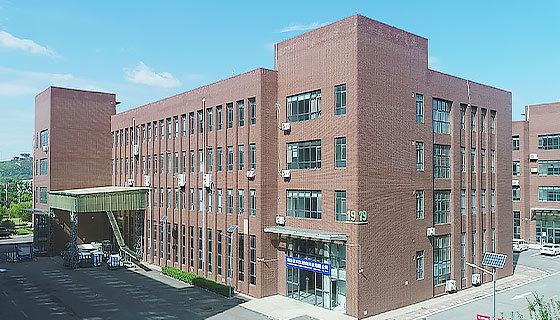Good home textiles can also help with insomnia
2023-10-19

Physiological experiments have shown that people who lack sleep not only have greatly reduced immunity, but also experience 4-5 times the daily aging process of normal people. The following is a systematic discussion and study on the impact of sleep on physiological tissues:
1. Sleep and cell lifespan
The consequences of lack of sleep on cell oxidative renewal mainly lead to tissue damage. This process is repaired through the action of enzymes. It is inseparable from the continuous repair of molecules and the overall maximum life span of cells. In terms of aging, , the most important thing is to detect DNA damage and repair them, and the integrity of cells is the basis of their division, proliferation and lifespan, and this repair mechanism is completed when the living body undergoes high-depth sleep.
Scientific research experiments have shown that high-intensity sleep time is the greatest amount of time the body spends on repairing DNA damage. From a cellular and molecular perspective, the balance between DNA damage and DNA repair is the most important indicator of cellular aging.
2. Sleep and body immunity
Whether it is lack of sleep or lack of complete sleep, it will have a devastating blow to the body's immune system, and the body's thymus will shrink rapidly. This is the most important immune organ of the human body. Under normal circumstances, only in middle-aged and old age, the thymus will shrink to the size of a cherry, and the proliferation of T cells will drop significantly. Not only will white blood cells and lymphocytes be greatly reduced, but macrophages will also be reduced. The cells have an inhibitory effect.
Without the protection of the human immune system, various cancer-causing diseases can be fatal to the human body. Even in the short term, the human body will feel nauseated, dizzy, mentally atrophied, and limbs weak. This is not only a physiological trend of direct decline in immunity, but also a precursor to disease.
3. Sleep and the nervous system
The nervous system is the main functional regulation system of the body. It directly regulates the functions of various organs and systems in the body. The relationship between sleep and the physiological functions of the central nervous system is closely inseparable.
As a regulatory mechanism, sleep is used to regulate visceral activities and hormone endocrine through the hypothalamus. Neuroendocrine not only depends on the instructions of the central nervous system, but also the activity cycle of the body's inherent "biological clock".
From a physiological point of view, the biological clock is the genetic memory code of DNA, such as the hypothalamus. When the human body is in deep sleep, it secretes reducing glutathione, superoxide dismutase (SOD), etc. from about 10 o'clock at night on average. etc. These are essential hormones that cannot be synthesized by the human body. They are mainly used to repair cell damage, promote cell proliferation and differentiation, and ensure the normal growth and development of various tissues and organs.
4. Sleep and repair mechanism
Experiments have shown that even short-term lack of sleep and lack of sufficient sleep time will cause the human body to age rapidly and reduce immunity significantly.
Deep sleep at night, through the function of the nerve center of the hypothalamus, actually regulates the metabolic activities of various tissue cells to affect the physiological activities of the human body. It is mainly used to repair cell damage and restore the integrity of tissue functions.
The biological clock is controlled by the suprachiasmatic nucleus (SCN) of the hypothalamus of the brain. It sends "time signals" to the central nervous system through the secretion cycle of endocrine hormones, thereby affecting the body's biological effects on time. This shows that the body's repair mechanism must be in Conducted at night.
5. Sleep and Growth Hormone
Sleep is a biological instinct. When a person is sleeping, the muscles of the whole body relax, the response to external stimuli is reduced, and activities such as heartbeat, breathing, and excretion are reduced, which is conducive to the recovery of various organs. The biological clock in the human body controls the endocrine system and releases various hormones. Among them is a growth hormone, which functions to promote muscle metabolism, restore physical strength, and promote bone growth.
During childhood, the secretion of this hormone shows a pattern of more nights and less days. The growth hormone released between 1 pm and 5 am is almost three times that of the day. Obviously, if infants and young children go to bed late for a long time, it will definitely affect the normal physiological secretion of growth hormone, which is quite detrimental to growth and development, especially the height.
Adults who often stay up late are prone to aging, while children are emotionally unstable. They often complain of soreness in their waists, legs and feet, do not like to walk, and their eyes get tired easily. Some children are also susceptible to diseases such as tracheitis and rhinitis.
Staying up late often may also cause constipation, which of course has a huge impact on the body.
Therefore, for the healthy growth and development of infants and young children, parents should arrange regular work and rest times for them, develop the habit of going to bed regularly at night, and ensure adequate sleep time. New baby's "night cry" affects growth Newborns who are just born can be said to have no distinction between day and night. They eat when they wake up and sleep when they are full. It is not until they are 4 to 5 months old that they gradually form a pattern. By the age of 7 to 8 months, 80% of babies wake up during the day (occasionally sleeping) and sleep at night. By the age of 1 year, they are close to the adult life pattern.
6. Influence the brain’s creative thinking
Scientific researchers believe that in order for the human brain to think clearly and respond sensitively, it must have sufficient sleep. If there is long-term lack of sleep and the brain does not get adequate rest, it will affect the brain's creative thinking and ability to process things.
7. Affects the growth and development of adolescents
In addition to factors such as genetics, nutrition, and exercise, the growth and development of adolescents is also related to the secretion of growth hormone. Growth hormone is a hormone secreted by the hypothalamus that promotes the development of bones, muscles, and organs. Since the secretion of growth hormone is closely related to sleep, that is, there is a large secretion peak after a person is asleep, followed by several smaller secretion peaks, while in a non-sleep state, growth hormone secretion decreases. Therefore, in order for teenagers to develop well and grow taller, they must get enough sleep.
8. Affects skin health
The reason why human skin is soft and shiny depends on the capillaries in the subcutaneous tissue to provide sufficient nutrients. Lack of sleep can cause skin capillary stasis and blocked circulation, causing skin cells to receive insufficient nutrients, thus affecting skin metabolism, accelerating skin aging, and making skin look dull and pale. Especially the eye circles are darkened and prone to wrinkles.
9.Cause disease
Frequent lack of sleep can make people feel worried and anxious, and reduce immunity, which can lead to various diseases, such as neurasthenia, colds, gastrointestinal diseases, etc. Lack of sleep can also cause an increase in blood cholesterol levels, which increases the chance of heart disease. Most of the human body's cell division occurs during sleep. Lack of sleep or sleep disorder will affect the normal division of cells, which may lead to the formation of cancer cells. Mutations lead to cancer. Generally speaking, people of different ages need 8-9 hours of sleep per day for middle school students and 7-8 hours for adults.
10. Lack of sleep can cause obesity
Relevant research shows that: lack of sleep can lead to a decrease in the concentration of lipolytic proteins in the human body. Lipidin is a substance active in the blood system. It has the function of suppressing appetite and can influence the brain to make decisions about whether to eat. Lack of sleep can also cause an increase in the concentration of appetite hormones in the human body. Appetite hormone is a substance secreted by the stomach that can induce people's desire to eat. When these departments in the human body that control "appetite power" conflict with each other, the brain's decision-making system may make wrong decisions.
If people can maintain a normal sleep schedule, it is possible to prevent the appetite regulatory department in their bodies from being disrupted and maintain their weight within a relatively normal range.
TAG:
Previous
Previous:
Recommended
Good home textiles can also help with insomnia

















